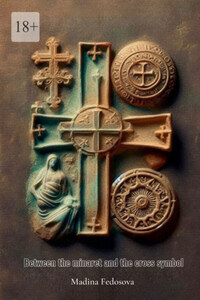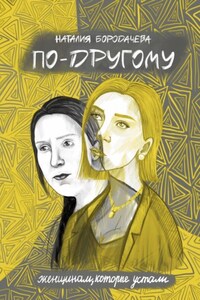This novel is a fictional interpretation of the unsolved murders that occurred in Hinterkaifeck, Germany, in 1922.
Although the plot is based on historical facts and known details of the case, some characters, relationships, events, and locations have been invented or altered to enhance the narrative and create a gripping thriller.
The author has researched available historical materials and documents related to the Hinterkaifeck case but has, for artistic purposes, deviated from the actual chronology and interpretation of events. It should be regarded as a creative interpretation rather than an accurate account of the tragedy.
The author has strived to treat the memory of the victims with respect and offers sincere condolences to all who have suffered from these tragic events.
The purpose of the novel is not to establish the truth in the Hinterkaifeck case, but to create a work of fiction inspired by real events, and the author hopes that this novel will not cause additional pain or suffering.
«The thing about unsolved crimes is that they are never truly solved. They just haven’t been solved yet.» At least, that’s what I tell myself. Perhaps it’s a convenient excuse for the hours I’ve spent studying grainy photographs and yellowed documents, the countless articles and books I’ve read, and the sleepless nights I’ve spent untangling the threads of the Hinterkaifeck mystery. I am not a detective, a historian, or even German. I’m just a writer drawn to the darker sides of the human experience.
But something about this story – the brutal murders on that isolated Bavarian farm, the decades without answers, the sheer, bewildering enigma – has stuck with me. I first stumbled upon this case in an old anthology of true crime, and the details have haunted me ever since. A murdered family, the absence of a clear motive, inexplicable footprints in the snow… it all felt unfinished.
But one thing I know for sure: the story of Hinterkaifeck deserves to be told, and I am here to tell it, to break the silence and present all known facts, striving, as much as possible, for objectivity and respect for the memory of the deceased. To analyze the evidence, to examine the motives, to explore the haunting legacy of a crime that has lingered for years. To grapple with the disturbing questions that continue to plague the minds of those who dare to delve into this story. Whether these lost souls will find peace is another story.
Part One
Premonition
Chapter 1
The Sockets of War
1919—1922
1922.Germany was suffocating in a fetid, post-war haze, poisoned by the acrid ashes of ruined cities and the skeletal shadows of hunger.
Once a proud and mighty empire, whose banners flew over all of Europe, now lay in ruins, like a defeated colossus struck to the heart.
Berlin, which only recently sparkled with lights and teemed with life, had become a labyrinth of debris, where crowds of exhausted and hungry people wandered among the ruins.
A thick smog hung in the air, mixed with the smell of burning and decay. Buildings, like disfigured faces, gaped with the empty sockets of windows, reminiscent of a former beauty mercilessly destroyed by war.
The Treaty of Versailles, like a red-hot brand of shame, seared deep, unhealed scars onto Germany’s ravaged body, humiliatingly restricting the army, seizing its fertile lands, and obligating it to pay unbearable reparations.
And hyperinflation, like an all-consuming fire, rapidly devalued everything, devouring savings, dreams, and hopes, leaving in return only soul-corroding despair.
In once-prosperous cities, where laughter rang and life flourished not long ago, chaos and all-consuming poverty now reigned. The streets filled with throngs of unemployed, yesterday’s soldiers.
Scarred by the war not only physically but also morally, they trudged along the pavement, dragging their mutilated bodies and wounded souls. In their empty eyes, one could read unbearable pain, despair, and a loss of faith in the future.
Medals, received for bravery on the battlefields, now merely clinked uselessly on their tattered uniforms, reminding them of betrayal and oblivion.
They wandered aimlessly through the city in desperate search of any kind of work, any occupation that would allow them to feed their families, or even just a crust of stale bread to quell the excruciating hunger gnawing at them from within.












